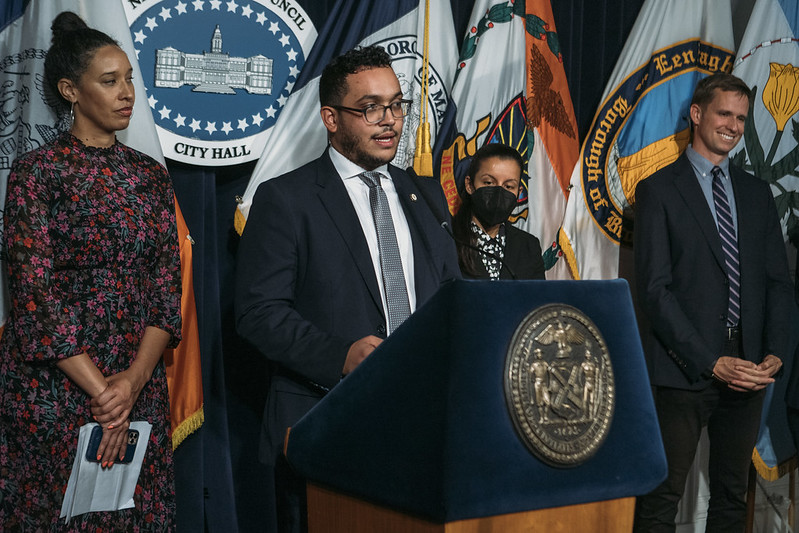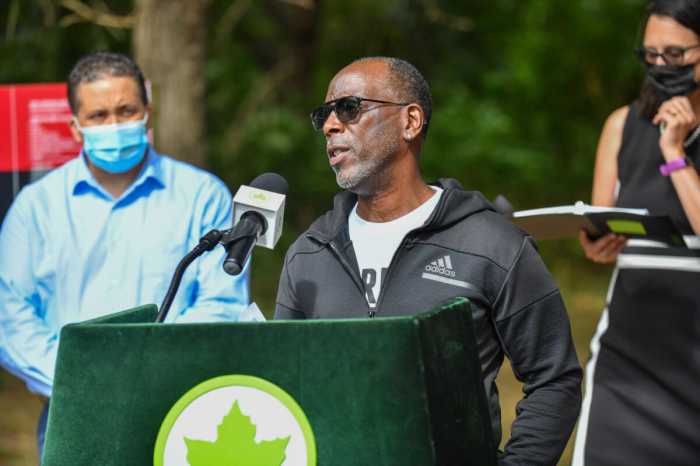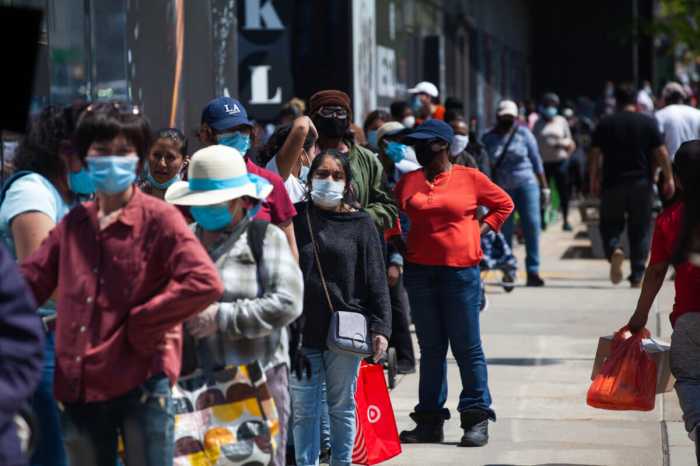Oh rats!
The City Council passed a package of bills Thursday aimed at combating the swarms of rodents running a muck on the city’s streets and in its subways.
The package, dubbed the Rat Action Plan, includes legislation that would designate more so-called “rat mitigation zones” – areas prone to rat infestations, direct the city health department to report annually on its efforts to curtail the rat problem in those zones, require buildings with several rodent-specific health violations place their trash in lidded containers and compel developers prove they retained a rodent exterminator in order to get a construction permit.
The bills on rat mitigation zones, lidded trash containers in buildings and construction sites all passed the council by a 44 to 6 vote with the body’s five Republicans and Council Member Kalman Yeger (D-Brooklyn) voting “no,” while the bill requiring an annual report on rat curtailment efforts passed unanimously.
The rat mitigation zone bill – Intro. 459a – clears the way for the city Department of Sanitation (DSNY) to issue new rules that would push back the time people can put out their trash from 4 p.m. to 8 p.m, which Mayor Eric Adams unveiled with Department of Sanitation (DSNY) Commissioner Jessica Tisch last week.
During a press conference preceding the Stated Meeting, City Council Speaker Adrienne Adams said the legislation is needed because increased numbers of rats in the city are causing quality of life and health issues for everyday New Yorkers.
“New York City is currently experiencing a severe rat infestation problem, one that has impacted all communities,” Speaker Adams said. “The increased number of rodents results in more property damage, food contamination and disease transmission as well as an overall impact on New Yorker’s quality of life. The council is focused on improving the health and safety of our neighborhoods and this legislative package will bolster efforts to address the surge of rodents throughout the city.”
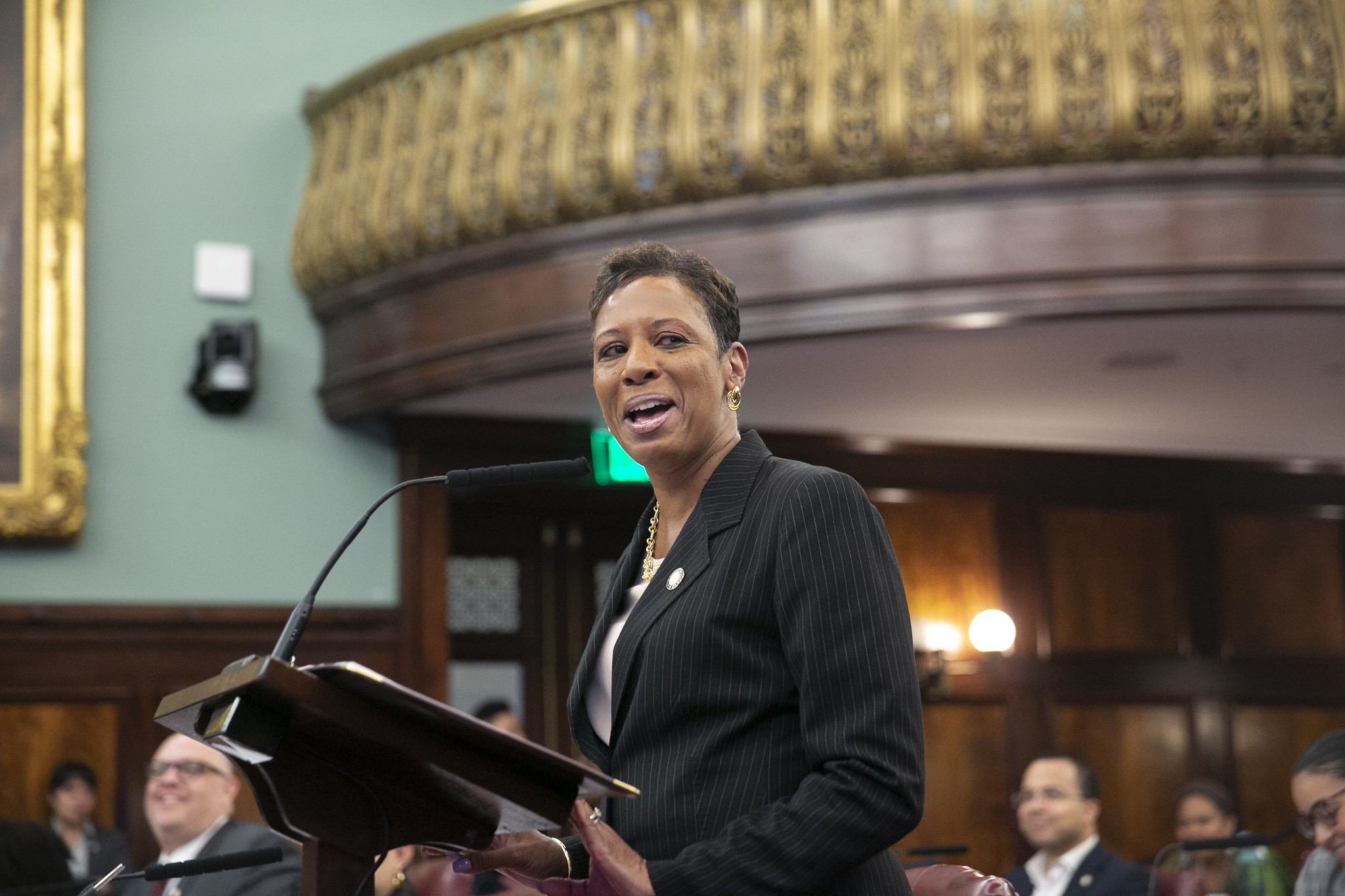
The cadre of council members behind the package, calling themselves the Rat Pack – named after an informal group of entertainers from the 1950s and ‘60s, rallied for the bills on the City Hall steps Thursday morning, ahead of the Stated Meeting. The group included Council Members Sandy Nurse (D-Brooklyn) – who chairs the body’s Committee on Sanitation, Shaun Abreu (D-Manhattan), Chi Ossé (D-Brooklyn) and Erik Bottcher (D-Manhattan).
“Today New Yorkers are saying, we’re more than just the Pizza Rat,” Nurse said, referring to a viral image of a rat with a slice of pizza in its mouth.
“Our icon should not be a rat dragging a pizza through the subway,” she continued. “And New York being dirty, our streets being dirty, we’re tired of the mountains of trash. So, over the last six months, we focused really really hard to put together a package of bills called the Rat Action Plan to really aggressively and relentlessly respond to the concerns raised by New Yorkers.”
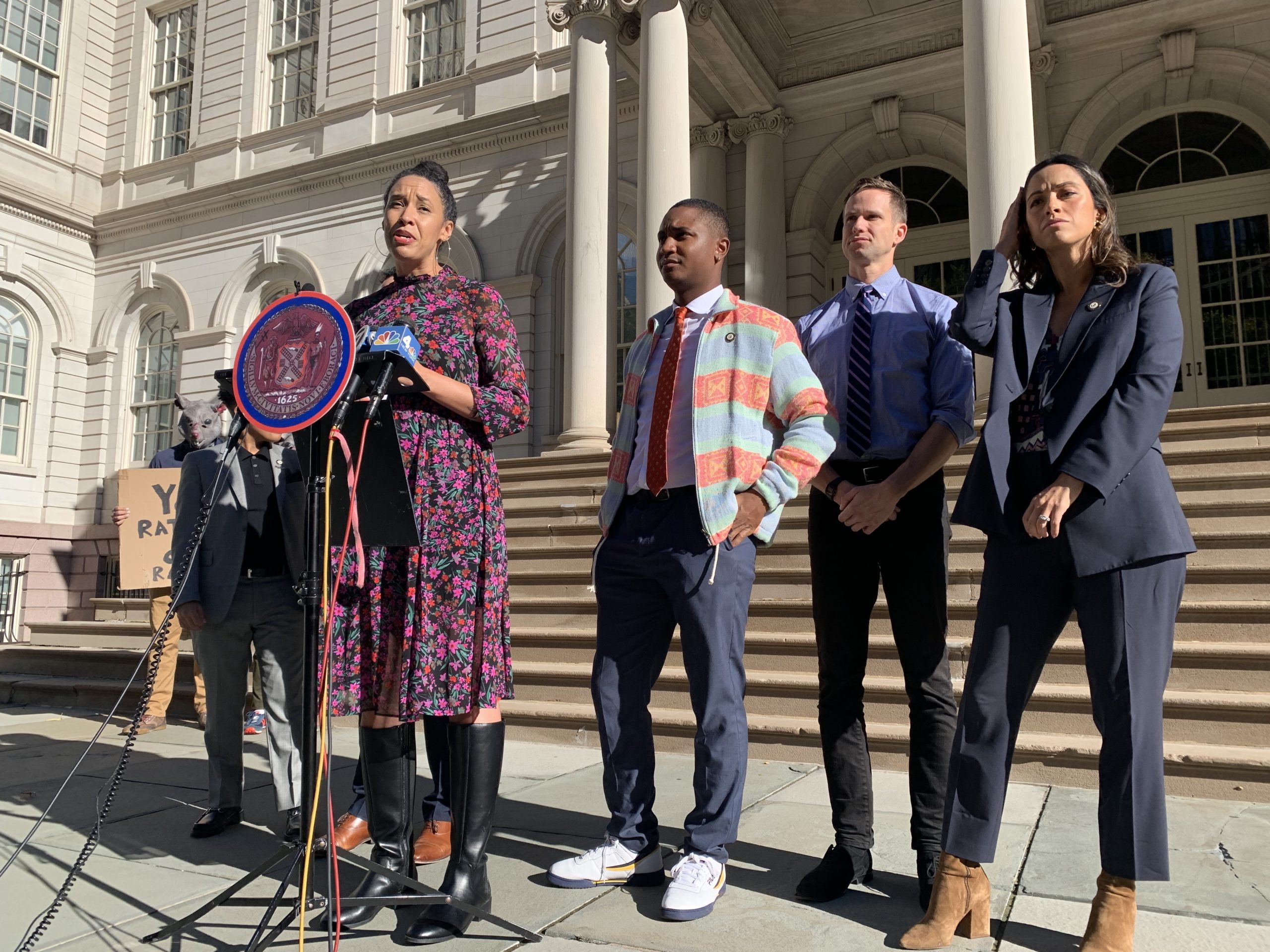
Nurse said the package was in part responding to a recent exponential rise in rat-related 311 complaints.
The rule change directing residential and commercial buildings to put out trash at 8 p.m. instead of 4 p.m. is intended to reduce the amount of time garbage sits on the streets overnight – often up to 14 hours – before its 8 a.m. pickup time in the morning. Abreu said that time change coupled with the sanitation department shifting more of its pickups – roughly a quarter now – to the midnight schedule, should help reduce the time black trash bags clog city sidewalks.
“This will keep our streets clean and starve rats of the midnight snacks that sustain their explosive growth,” Abreu said. “Families will no longer have to navigate as many mountains and mazes of trash piled up outside of their apartments. New Yorkers won’t have to fear as many rats hiding in late night shadows, or more frequently, rampaging through our subway system and sidewalks without fear.”
Some have criticized the rule shift, saying it’s not an effective strategy for reducing the number of rats on city streets because the four-legged furry creatures are nocturnal and do most of their feasting after 8 p.m., so moving the set out time back four hours won’t make much difference. But Abreu said this rule change is just one part of a broader strategy to reduce the city’s rat population.
“This is not going to make them go extinct, I’ve said that before,” Abreu said. “It’s important to increase stress upon them. This is a war we’re taking on, right? So, we’re using everything at our disposal to make it a reality.”
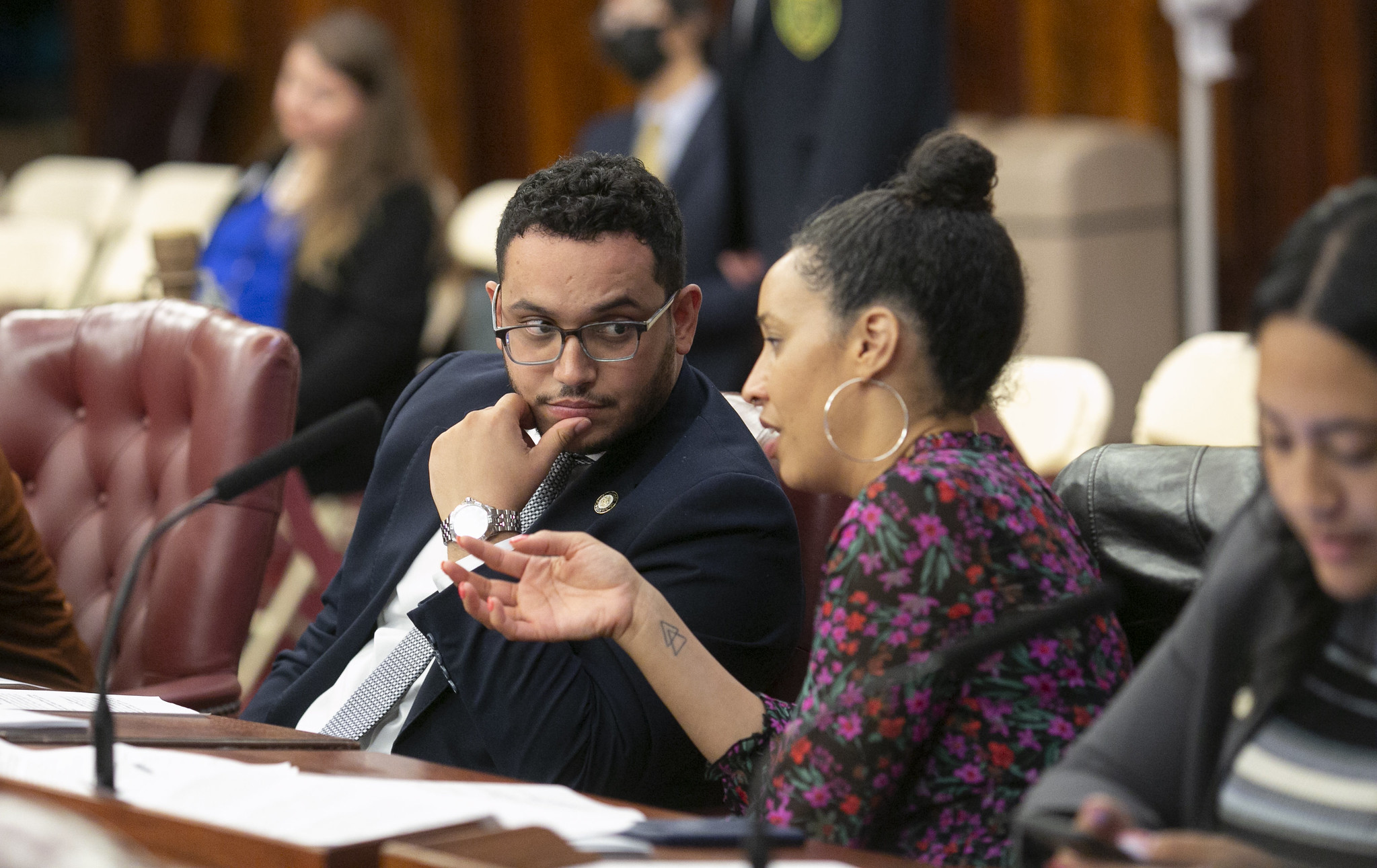
The council also passed a legislative package Thursday to expand services for survivors of domestic violence, which included a bill directing the Adams administration to provide financial housing assistance to survivors through a grant program.
Additionally, they passed bills directing the city’s transportation and parks departments to develop a “citywide greenway master plan” with the goal of constructing a greenway network across the five boroughs and to report on sites around the city where additional public bathrooms can be built.
““The city’s lack of public restrooms is multifaceted,” said Council Member Rita Joseph – who sponsored the legislation. “It’s an issue of equity, public health, sanitation, and basic human rights. With the passage of the bill, we’re showing that New Yorkers want to live in a city where clean, readily accessible, public restrooms are a reality.”


